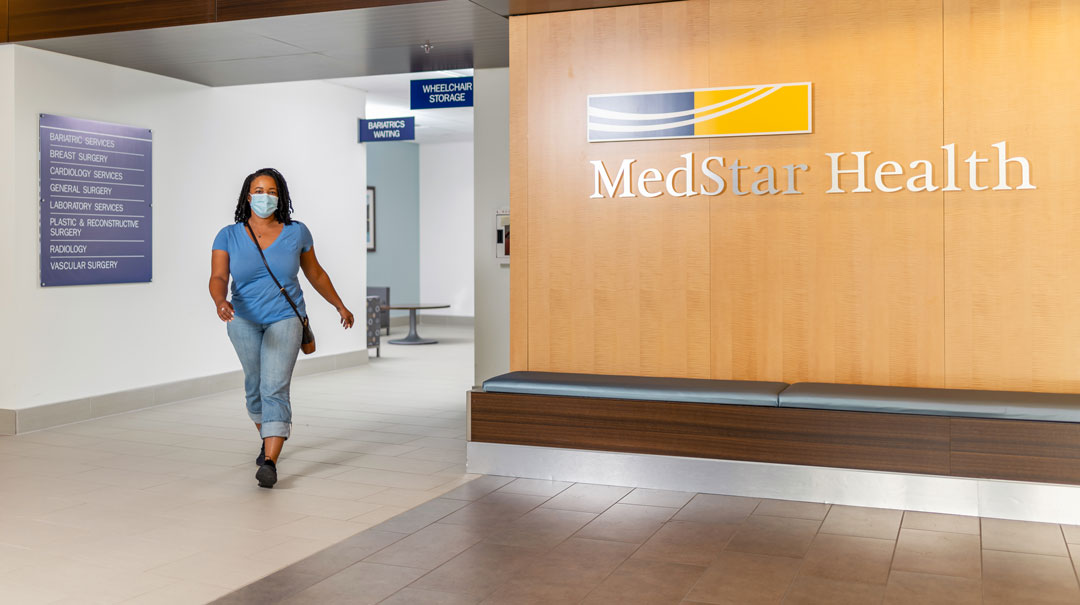Find care now
If you are experiencing a medical emergency, please call 911 or seek care at an emergency room.

Gun violence in Washington, D.C., has plagued our community with almost 200 homicides this year, an increase of 13% from last year. The trauma unit at MedStar Washington Hospital Center in D.C. is one of the busiest in the region, with about 600 patients who survive violent injuries every year. Investigators at MedStar Washington are working to understand how tailored interventions can help violent injury patients recover, help reduce violent re-injury, and address prominent and specific needs of violence survivors with an aim to break the cycle of violence in our community.
Under the direction of Dr. Erin Hall & Millie Sheppard through funding made available by D.C. Office of Victims Services and Justice Grants, the Maryland Governor's Office of Crime Control and Prevention and the National Crime Victim's Legal Institute, the MedStar Health Community Violence Intervention Program (CVIP) was designed to reduce and prevent new injuries and retaliatory violence through promoting an improved sense of self for each patient. The goal of this research program is to help survivors during their recovery to reduce risk factors for violent reinjury and increase protective factors through engagement, empowerment, support, and advocacy.
“We really want to take that therapeutic opportunity to say, ‘We have some resources to help you overcome this, to look forward to the future, to start to set your own goals about what you want and use this period of time and reexamination to set a trajectory toward better health,’” said Dr. Erin Hall, in a recent interview with NBC4.
The MedStar Health Community Violence Intervention Program is also a part of a national study sponsored through the American College of Surgeons Committee on Trauma on non-fatal gunshot wounds. MWHC-CVIP also works collaboratively with other hospital-based violence intervention programs in the DC area to track and analyze recurrent violent injury for patients through a multi-pronged approach. This includes frequent follow-ups and standardized close-out questionnaires. The findings help the team analyze the impacts of interventions, pre-existing risk factors, and identify novel independent risk factors for recurrent violent inury.
The team is dedicated to helping violence survivors heal physical and hidden wounds and providing support in the hope of reducing the number of repeat visitors to the hospital. Each potential program participant is assigned to a social worker, treatment navigator and violence intervention specialist, who are then responsible for engaging the survivor with ongoing support to help them find resources in education, employment, physical therapy and more. The program follows up with patients for six months and oftentimes there are success stories and the promise of making change in people’s lives to help address their trauma and look to a better future.
The Core Components of CVIP are:
- providing culturally competent first contact with eligible participants within 24 hours of injury
- providing trauma-informed care
- eliciting patient-generated goals and needs
- delivering intensive case management to meet those goals and needs
- facilitating a warm hand off to community resources tailored to each participant
- providing consistent follow-up after discharge from the hospital
Developing community partnerships is another goal of CVIP to help break the cycle of violence in our community. So far, their outreach efforts have secured relationships with external groups such as the Office of Neighborhood Safety and Engagement, Cure the Streets, Collaborative Solutions for Communities, Training Grounds, Network for Victim Recovery of DC, Victims Legal Network of DC, Black Mental Health Alliance, Georgetown Law Health Justice Alliance, and Alliance of Concerned Men. Future work includes working with the Network for Victim Recovery of DC to increase knowledge and understanding of Crime Victim Rights within the District and with Georgetown Law Center’s Health Justice Alliance to identify and address civil legal needs of survivors. The goal of this program would be to help educate survivors of their rights as crime victims, identify health harming circumstances that may have a civil legal remedy, and assist participants with obtaining appropriate legal services, if necessary.














